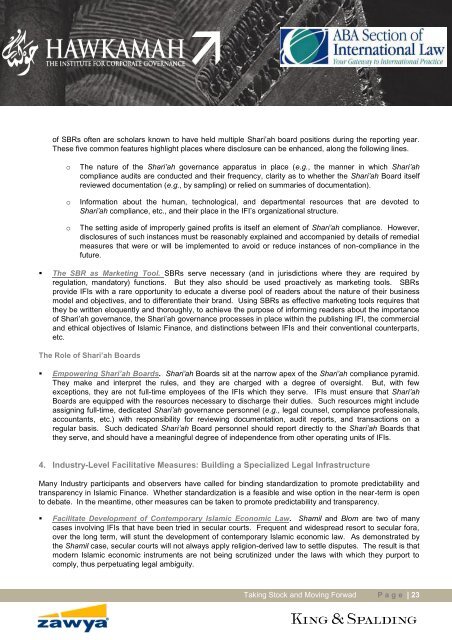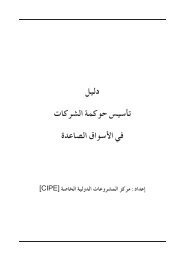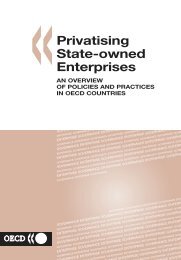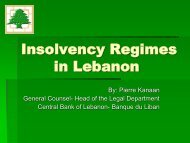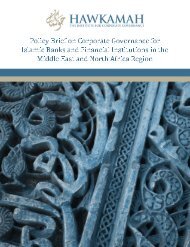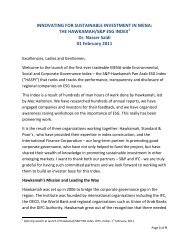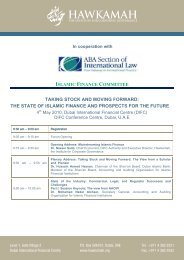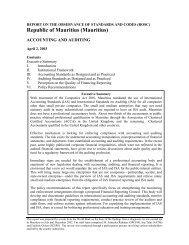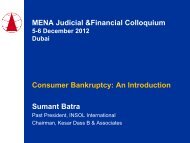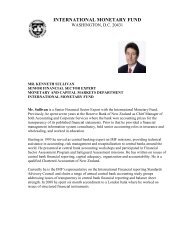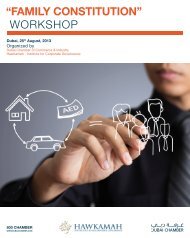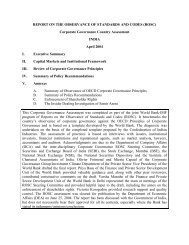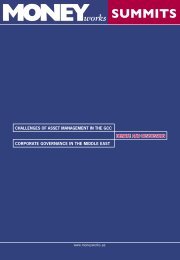THE STATE OF ISLAMIC FINANCE AND PROSPECTS FOR THE ...
THE STATE OF ISLAMIC FINANCE AND PROSPECTS FOR THE ...
THE STATE OF ISLAMIC FINANCE AND PROSPECTS FOR THE ...
- No tags were found...
You also want an ePaper? Increase the reach of your titles
YUMPU automatically turns print PDFs into web optimized ePapers that Google loves.
of SBRs often are scholars known to have held multiple Shari‘ah board positions during the reporting year.These five common features highlight places where disclosure can be enhanced, along the following lines.oooThe nature of the Shari’ah governance apparatus in place (e.g., the manner in which Shari’ahcompliance audits are conducted and their frequency, clarity as to whether the Shari’ah Board itselfreviewed documentation (e.g., by sampling) or relied on summaries of documentation).Information about the human, technological, and departmental resources that are devoted toShari’ah compliance, etc., and their place in the IFI‘s organizational structure.The setting aside of improperly gained profits is itself an element of Shari’ah compliance. However,disclosures of such instances must be reasonably explained and accompanied by details of remedialmeasures that were or will be implemented to avoid or reduce instances of non-compliance in thefuture.• The SBR as Marketing Tool. SBRs serve necessary (and in jurisdictions where they are required byregulation, mandatory) functions. But they also should be used proactively as marketing tools. SBRsprovide IFIs with a rare opportunity to educate a diverse pool of readers about the nature of their businessmodel and objectives, and to differentiate their brand. Using SBRs as effective marketing tools requires thatthey be written eloquently and thoroughly, to achieve the purpose of informing readers about the importanceof Shari‘ah governance, the Shari‘ah governance processes in place within the publishing IFI, the commercialand ethical objectives of Islamic Finance, and distinctions between IFIs and their conventional counterparts,etc.The Role of Shari’ah Boards• Empowering Shari’ah Boards. Shari’ah Boards sit at the narrow apex of the Shari’ah compliance pyramid.They make and interpret the rules, and they are charged with a degree of oversight. But, with fewexceptions, they are not full-time employees of the IFIs which they serve. IFIs must ensure that Shari’ahBoards are equipped with the resources necessary to discharge their duties. Such resources might includeassigning full-time, dedicated Shari’ah governance personnel (e.g., legal counsel, compliance professionals,accountants, etc.) with responsibility for reviewing documentation, audit reports, and transactions on aregular basis. Such dedicated Shari’ah Board personnel should report directly to the Shari’ah Boards thatthey serve, and should have a meaningful degree of independence from other operating units of IFIs.4. Industry-Level Facilitative Measures: Building a Specialized Legal InfrastructureMany Industry participants and observers have called for binding standardization to promote predictability andtransparency in Islamic Finance. Whether standardization is a feasible and wise option in the near-term is opento debate. In the meantime, other measures can be taken to promote predictability and transparency.• Facilitate Development of Contemporary Islamic Economic Law. Shamil and Blom are two of manycases involving IFIs that have been tried in secular courts. Frequent and widespread resort to secular fora,over the long term, will stunt the development of contemporary Islamic economic law. As demonstrated bythe Shamil case, secular courts will not always apply religion-derived law to settle disputes. The result is thatmodern Islamic economic instruments are not being scrutinized under the laws with which they purport tocomply, thus perpetuating legal ambiguity.Taking Stock and Moving Forwad P a g e | 23


